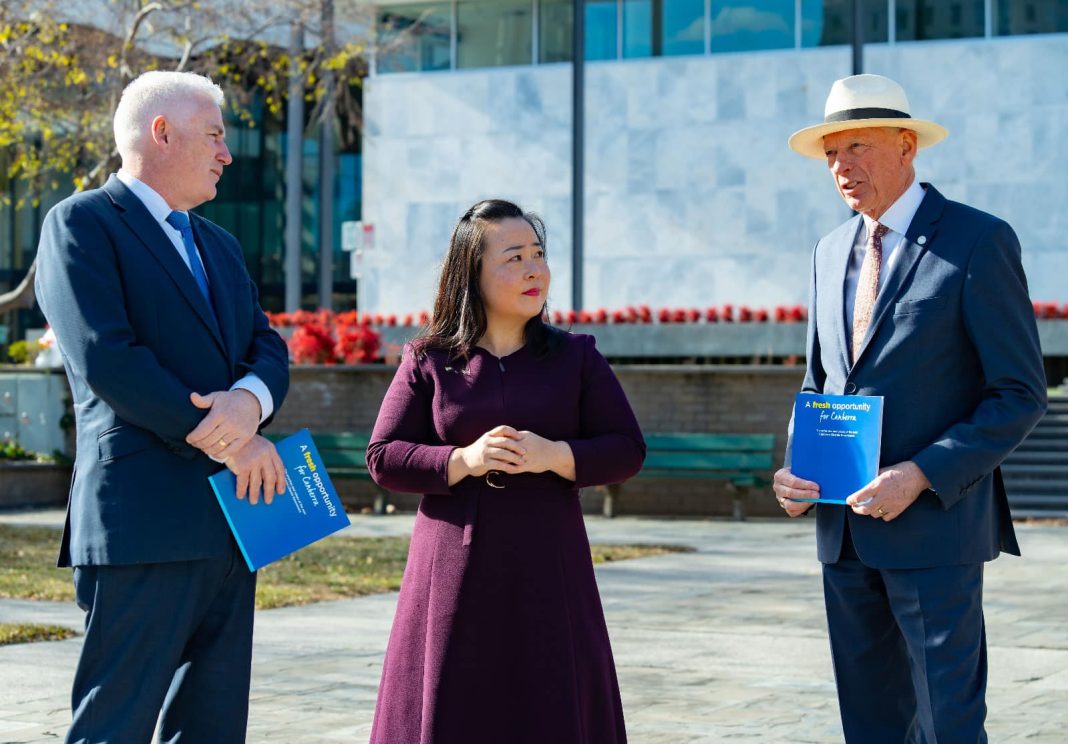2 August: Added comments from Tom McLuckie and graphs.
The Canberra Liberals have promised more police and tougher penalties on crime in order to keep the ACT safe.
“Under Labor and the Greens, our police force has been neglected for many years,” opposition leader Elizabeth Lee said. “There’s been an erosion of public confidence in our justice system. Every Canberran deserves to feel safe in their homes and in the community. This suite of policies and initiatives will go a long way to restoring trust in our justice system and backing our hard-working police that are on the frontline.”
“The Canberra Liberals have put together an excellent law and order package that the Canberra community should welcome,” Alex Caruana, president of the Australian Federal Police Association (AFPA), said.
Tom McLuckie has been an outspoken critic of the ACT’s approach to reckless driving and recidivism ever since his son Matthew died in a car crash in 2022.
“I commend the Canberra Liberals on their proposed increase in police funding and addressing these underlying issues…” Mr McLuckie said.
“The proposed additional policing is urgently required to address the declining safety of the citizens of the ACT.
“The lip service from the ACT Government (led by Greens Attorney-General Shane Rattenbury and our Labor Chief Minister Andrew Barr) clearly shows apathy to the safety of Canberrans, and in addressing the underlying factor driving repeated criminality. Their policies are not working.”
However, ACT Labor claim the Liberals are right-wing, and the ACT Greens say the Liberals have taken the wrong approach.
“It is no surprise,” a Labor spokesperson said, “that the Canberra Liberals are pursuing a conservative approach to law and order in the ACT with their plans to unwind policies such as the ACT’s nation-leading drug-law reforms and minimum age of criminal responsibility. [The Liberals allege that Labor deliberately ‘went quietly’ with its decriminalisation of heroin, ice, and other hard drugs, and called for the reforms to be delayed until the election.] It’s just another example of the conservative, right-wing agenda many members of the Canberra Liberals caucus would implement if given the opportunity.”
More police
The Liberals would recruit 200 additional police in the ACT (74 on top of the 126 Labor has already budgeted) – necessary to bring the ACT into line with NSW. The ACT has had the fewest police officers and the lowest recurrent expenditure per capita for several years, according to ROGS data.

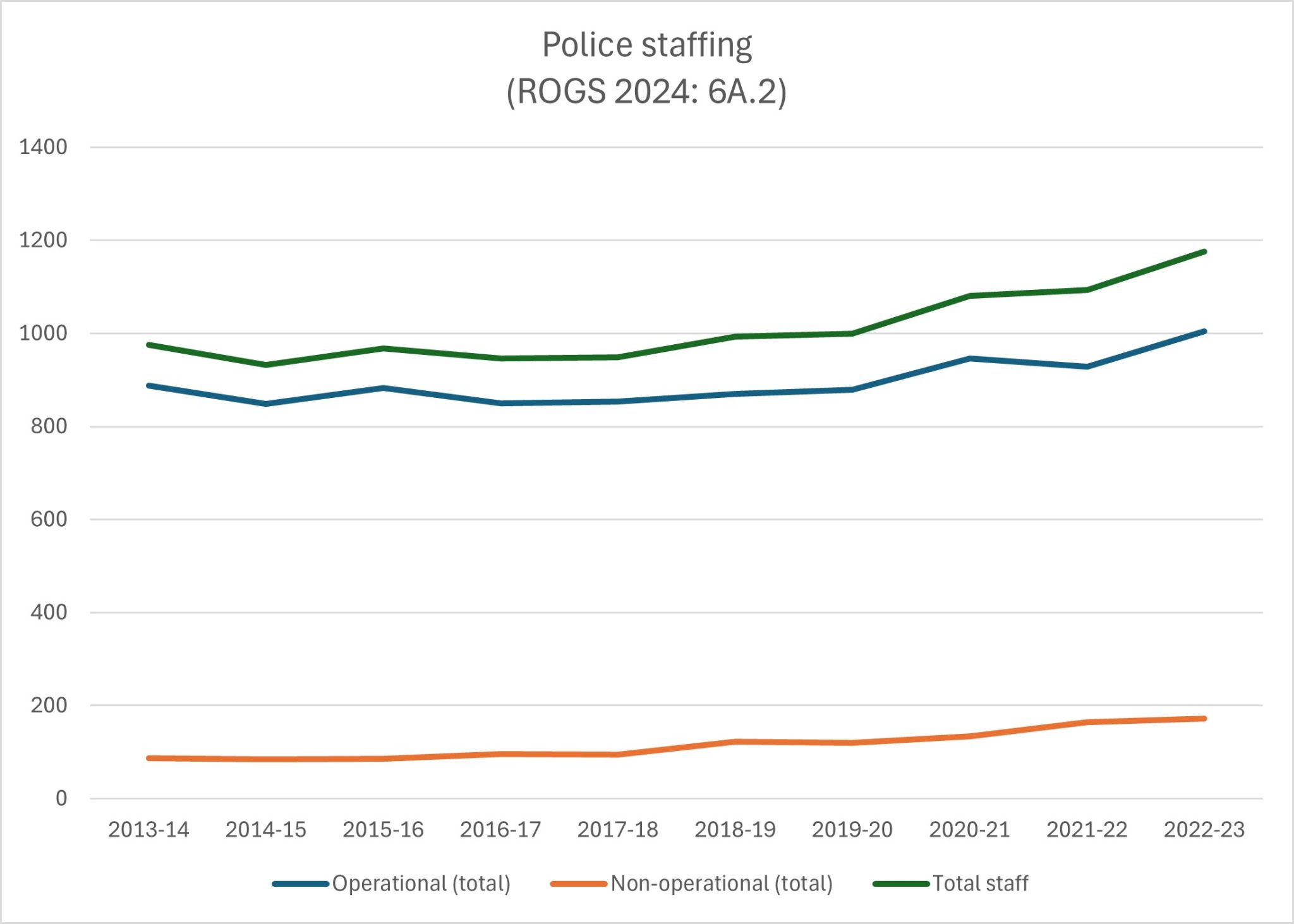
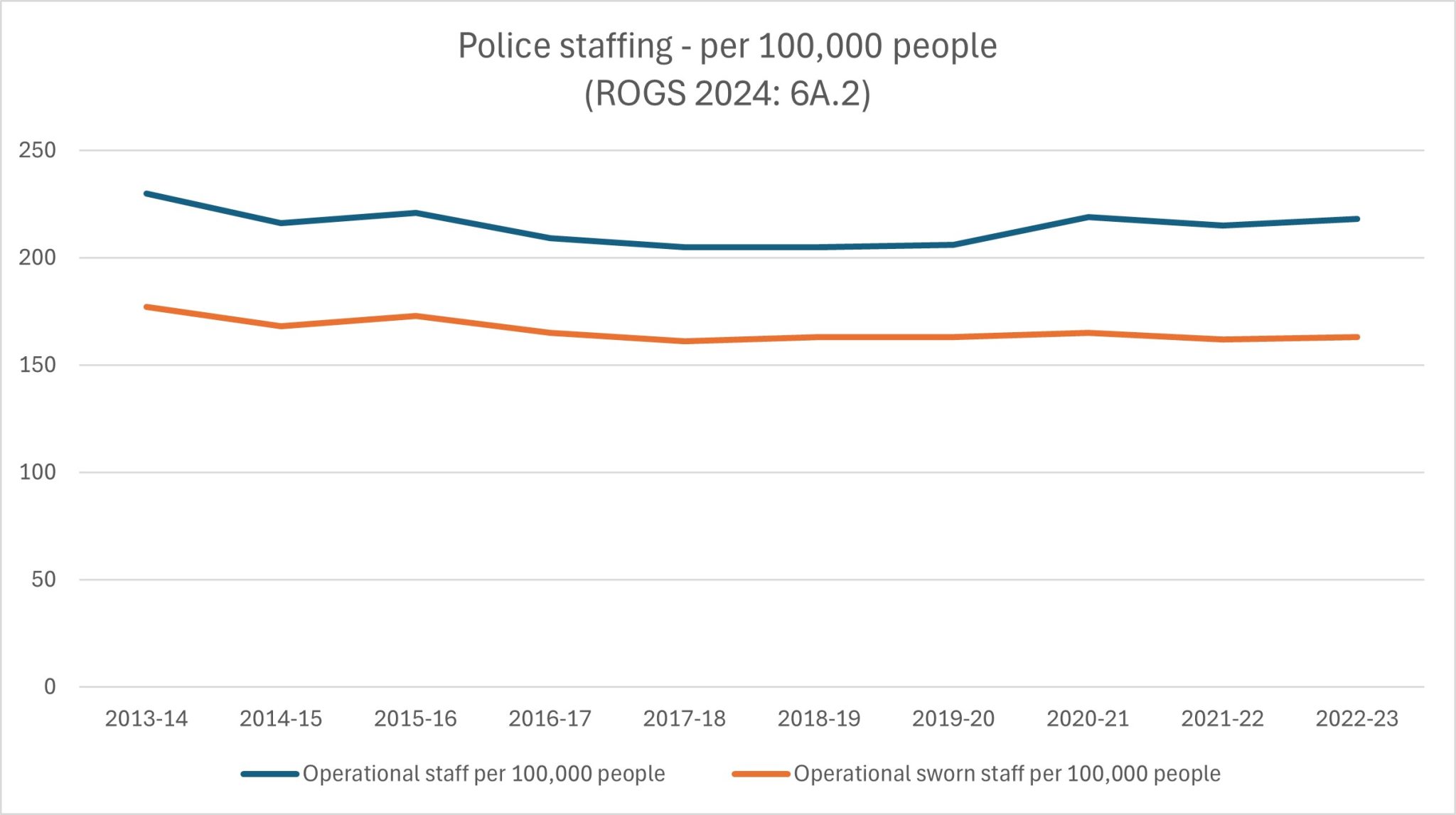
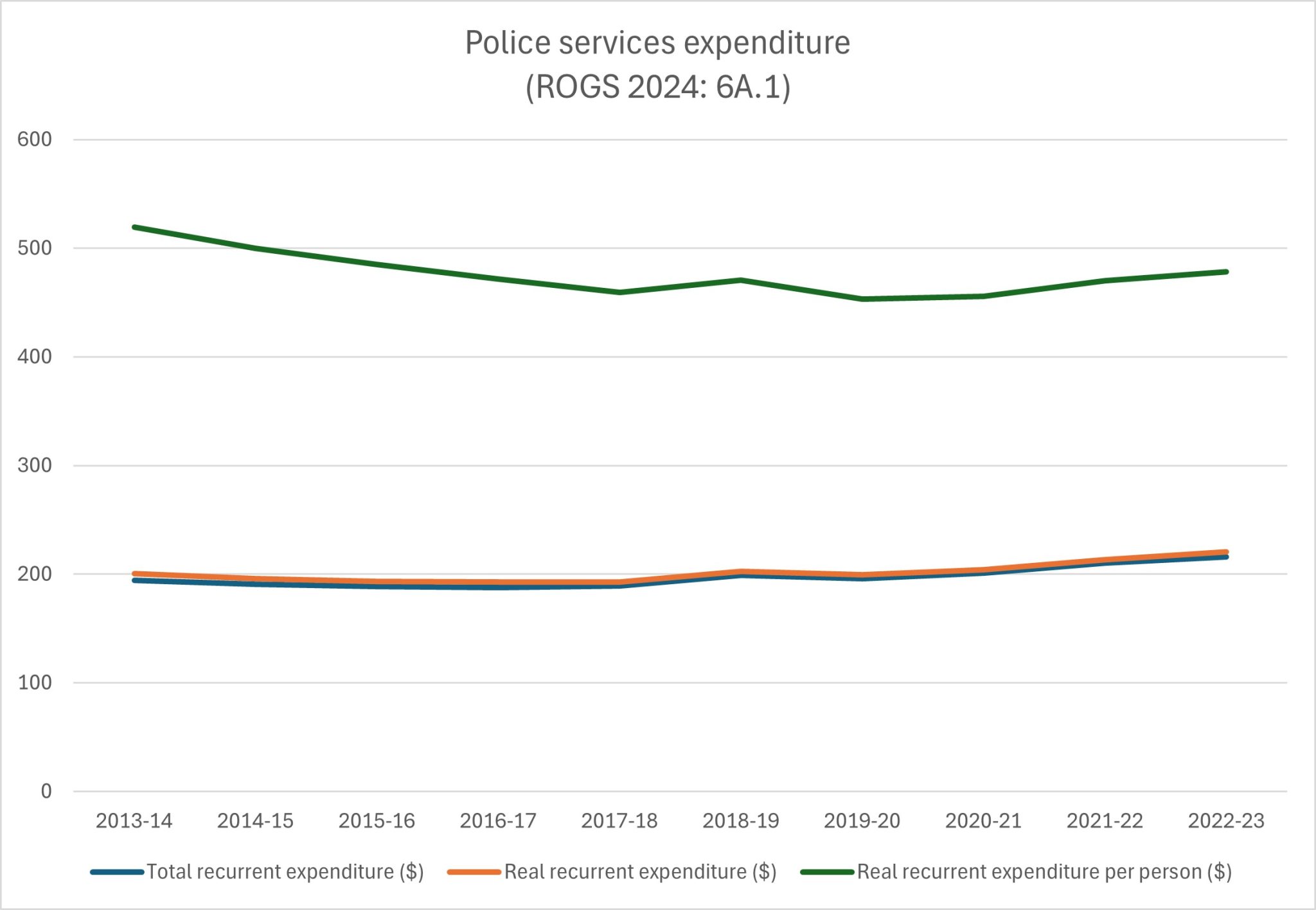
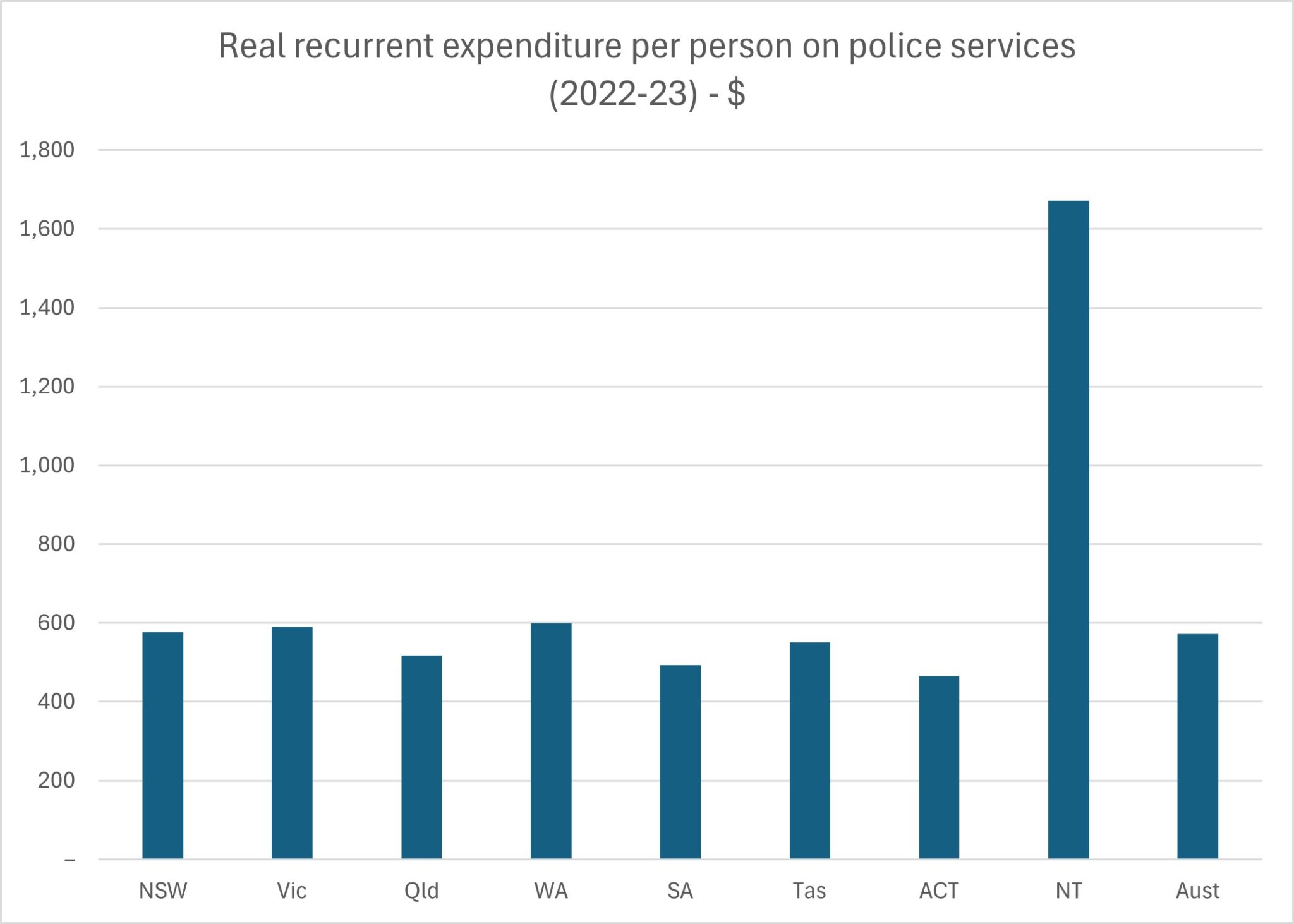
The Liberals say that is the result of the government removing $15 million from the budget for ACT Police in 2013. (The ACT Government last year rejected a Liberals motion for investigation into police numbers.) ACT police stations are half-manned, shadow police minister James Milligan said; and AFPA has protested that their members are overstretched and burning out. The Liberals, working with ACT Policing and the AFPA, would develop a recruitment campaign.
“Two hundred additional police officers is a great start, and would allow ACT Policing to plug a lot of holes in the workforce that have arisen due to low numbers of officers,” Mr Caruana said.
“Another essential element that needs looking at is the retention of experienced police officers in ACT Policing. It is fantastic having new officers join the ranks, but we need experienced police officers to mentor and train these new officers when they hit the ground.”
Labor said its recruitment of police would continue over the next three years.
Police stations
The Liberals would build a police station in Molonglo – a fast-growing area of the ACT that desperately needs a police presence, Mr Milligan said. The Liberals promised in 2020 to build a combined Molonglo police station and traffic operations centre, and have called on the government to do so. Molonglo is a fast-growing area of the ACT that desperately needs a police presence, Mr Milligan said; the region must rely on Woden Police Station, which also covers Fyshwick and Narrabundah.
The Liberals would also upgrade Woden Police Station ($5 million), which they claim the government has neglected; investigate options for a new Civic police station (temporarily shut earlier this year due to water damage); and transition the Gungahlin Joint Emergency Services Centre into a standalone police station (closed earlier this year due to lead and diesel contamination).
A Labor spokesperson said that a City Police station and a dedicated police station in Gungahlin were already government policy.
The AFPA, however, said that the ACT Government had neglected police stations in terms of their overall maintenance and ‘future-proofing’ for too long.
“I acknowledge and thank the current government for recent improvements made to police stations across the ACT,” Mr Caruana said. “However, for those improvements to occur, two police stations had to be closed due to work, health, and safety issues. This was manifestly unfair and dangerous for the affected ACT Policing members, as well as the broader community living and working in the Gungahlin and City regions.
“Apart from Belconnen Police Station, there are no police stations in the ACT that I would call ‘future proofed’. The ACT continues to expand, both in terms of population and its suburban footprint, and ACT Policing staffing, resources and accommodation needs to match this expansion.”
Inspector Mark Richardson, Independents for Canberra candidate, said: “There is no question our police force is feeling the strain. Additional police numbers, better pay and conditions to increase retention, and investing in police infrastructure will help ease the burden.”
Labor will make further commitments in the campaign, including more police officers and plans to invest in local police facilities.
Bail and sentencing
“For too long, we have seen many members of our community raise significant concern about whether the current laws are meeting community expectations,” Ms Lee said.
The Canberra Liberals would remove the presumption of bail for offenders who assault frontline workers; and establish a standalone offence for breach of bail.
“Victims of such offences need stronger assurance than this government is giving that we’ve got their backs and we’re trying to keep them safe,” shadow attorney-general Peter Cain said.
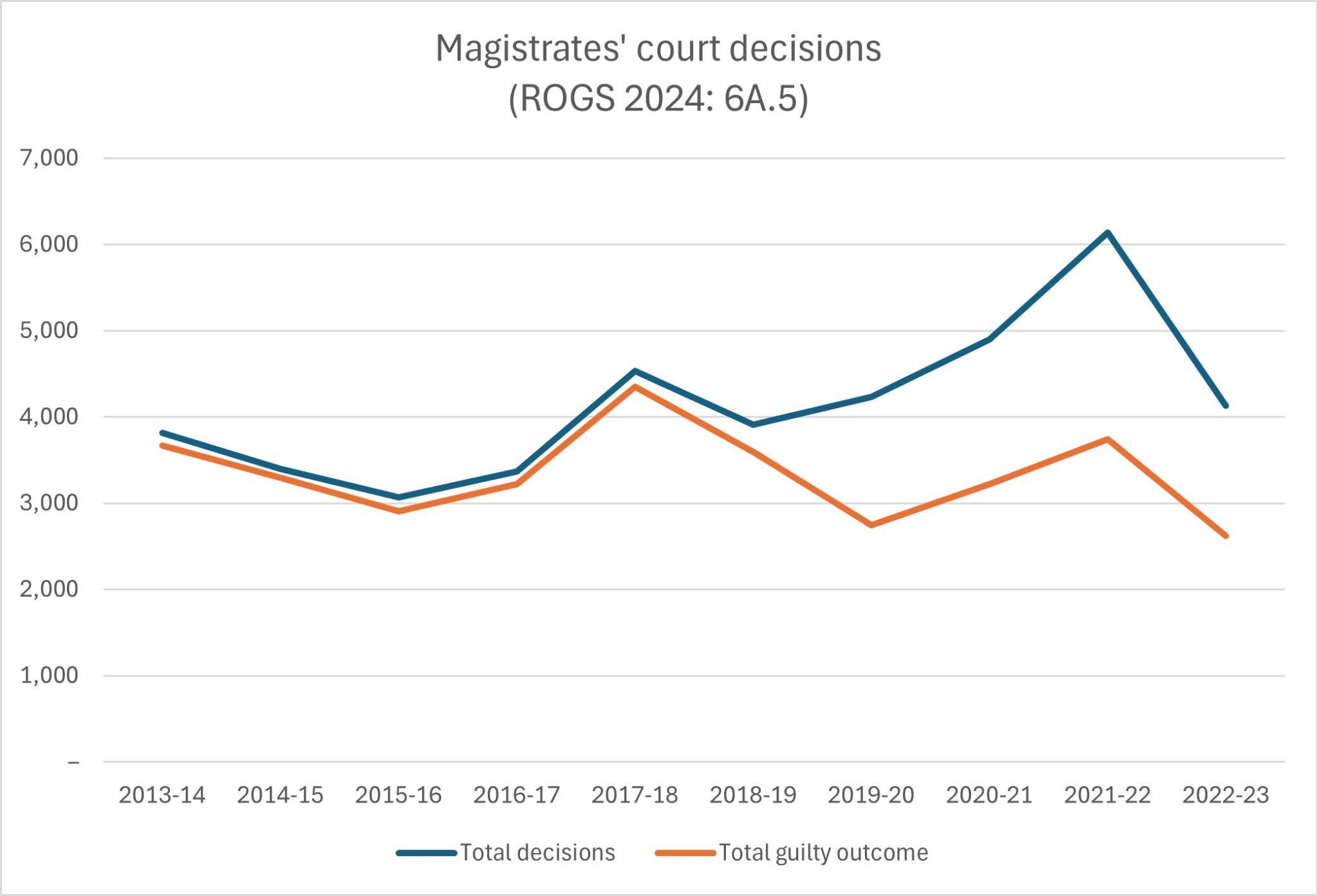
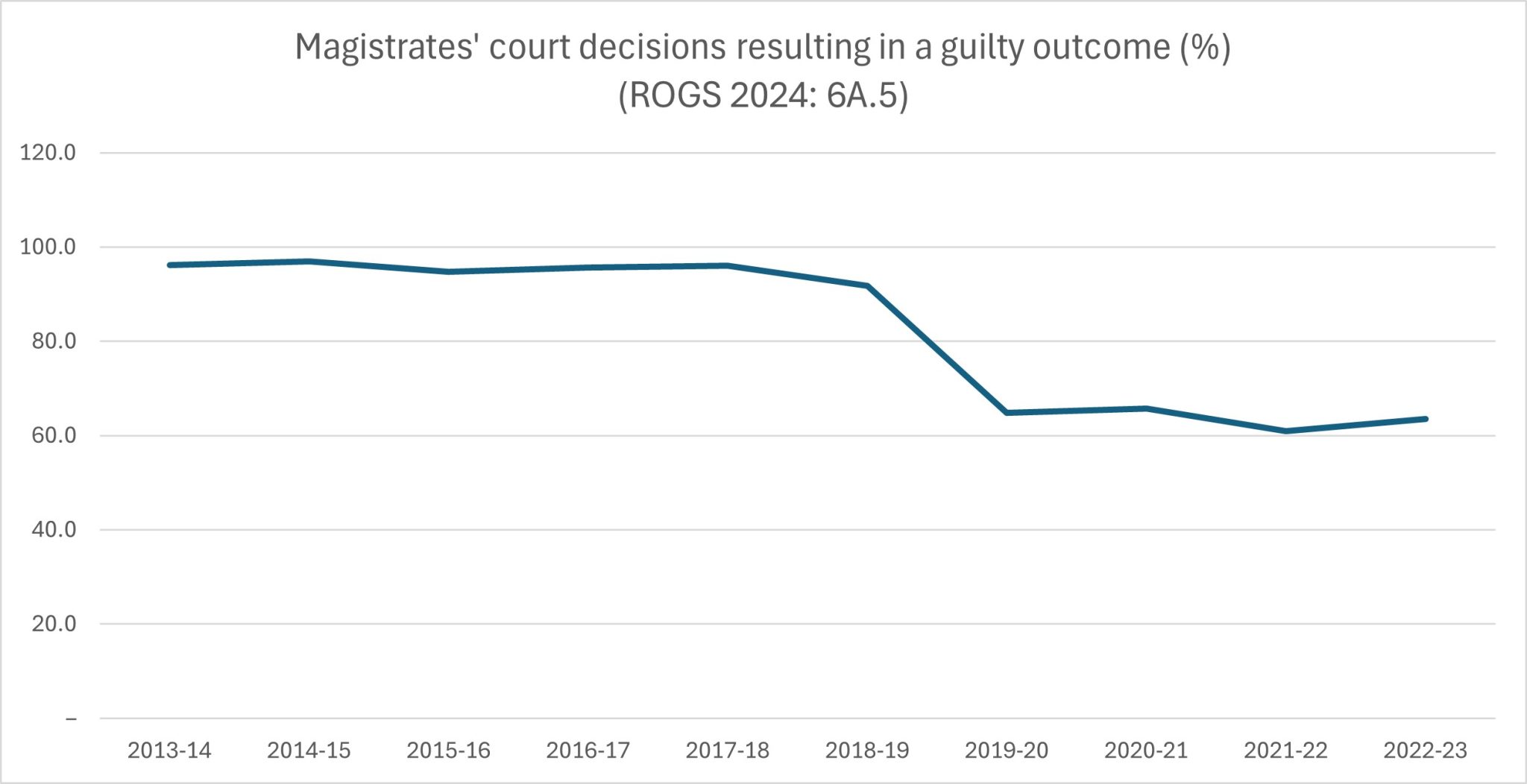
The AFPA demanded a reform of the ACT’s bail and sentencing in 2022, including an independent review of bail and sentencing, appalled by a court decision to grant bail to a recidivist offender who allegedly attacked a policeman in the company of two other recidivist offenders. However, then-shadow police minister Jeremy Hanson’s motion for an independent review of bail and sentencing was defeated in 2022. A 2021 Canberra Liberals motion to reform the Territory’s bail laws also failed.
Mr Caruana said today that removing the presumption of bail for people who assault frontline workers remained a necessary and important step for the safety of all frontline workers across the ACT.
“The removal of the presumption for bail does not mean that bail could not still be granted. This means that when bail is being considered during proceedings relating to assaults against frontline workers, both the prosecution and the defence need to provide sufficient and compelling reasons for either the granting or denial of bail.
“Occupational violence must never be tolerated in any industry, and police officers and other frontline workers often endure aggressive behaviour that can result in physical or psychological harm. The AFPA supports any legislative reform that would offer greater protection for all frontline workers.”
The Liberals would introduce electronic monitoring of serious offenders on bail (e.g., assault, domestic violence). The ACT is the only jurisdiction that does not have electronic monitoring, Mr Cain noted. A Labor spokesperson said that the ACT Government was working to implement electronic monitoring in the ACT; later this month, Cabinet would discuss proposals to introduce the technology.
The Liberals would introduce tougher penalties for capable driving and ‘coward punch’ attacks. A Labor spokesperson noted the ACT had introduced tougher measures to crack down on dangerous driving.
‘Jack’s law’ would reduce knife crimes, empowering police to use metal detecting wands to detect knives carried in public places, and to issue penalties for possession of knives. The deranged Alex Ophel last year stabbed two women students at the Australian National University.
“We don’t want that happening again in the ACT, and giving the police the powers to search for knives in designated areas, I think, is warranted,” Mr Cain said.
Crime increasing in ACT?
Ms Lee said she had taken the “harrowing experiences” of constituents on board. Women in Tuggeranong do not feel safe walking public streets in the dark. A teenage child was beaten up over the weekend, for no reason, and out of the blue. A 92-year-old cannot sleep at night, because robbers steal from their front yard. Tradies have had tools worth thousands of dollars stolen, preventing them from working.
Nor, Ms Lee said, does the public trust the crime reporting system. The police do not have the resources to act on property crime, she said; citizens stop reporting after they have been broken into for the third time, or had their car stolen for the second time.
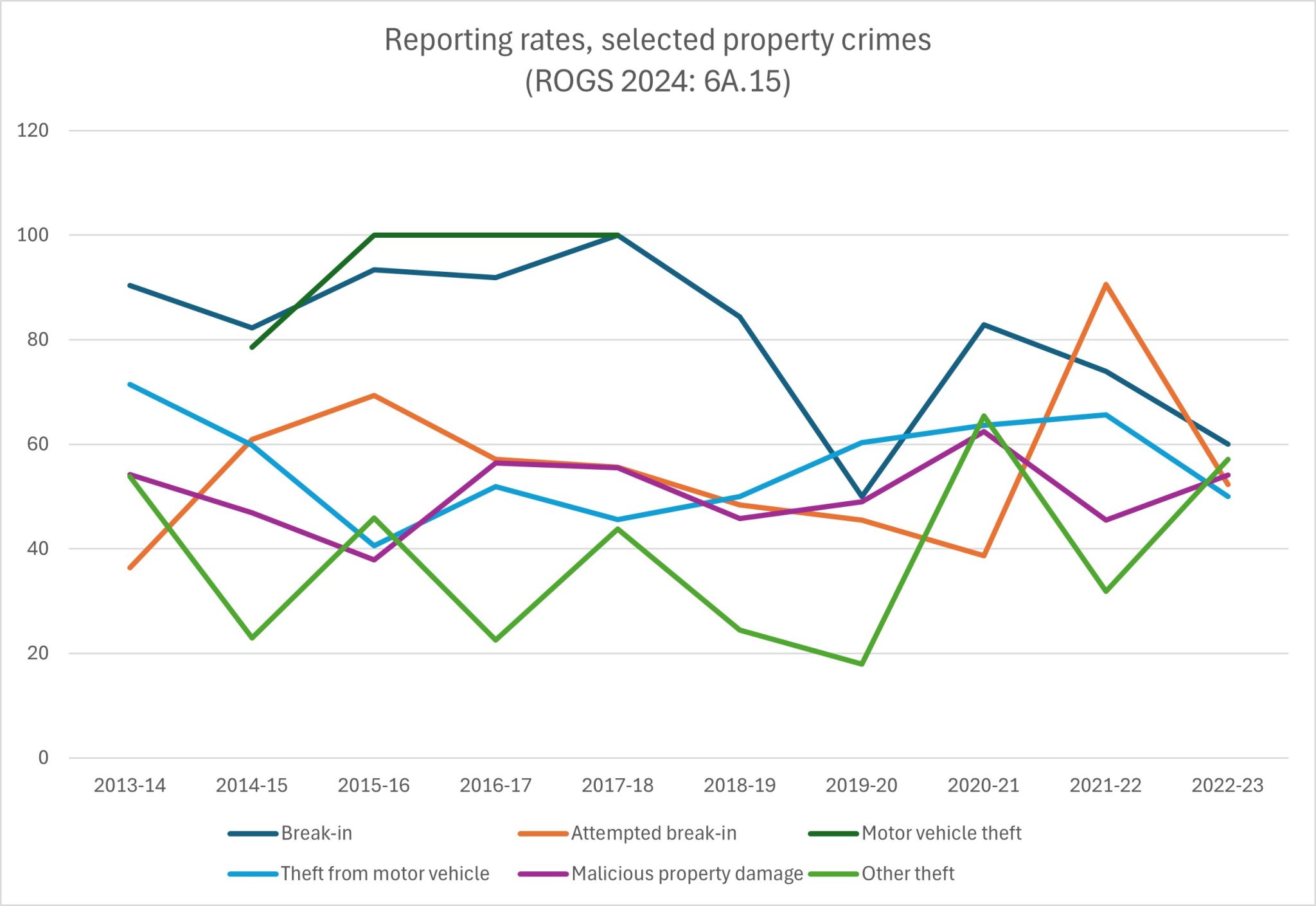
Greens leader and Attorney-General Shane Rattenbury said Canberra had some of the lowest crime rates in the country, and that reoffending had been cut by nearly 20 per cent over the last five years.
However, although the ACT has the third lowest percentage of prisoners who are imprisoned again within two years, it also has the highest percentage of released prisoners who return to corrective services, and that percentage is rising:
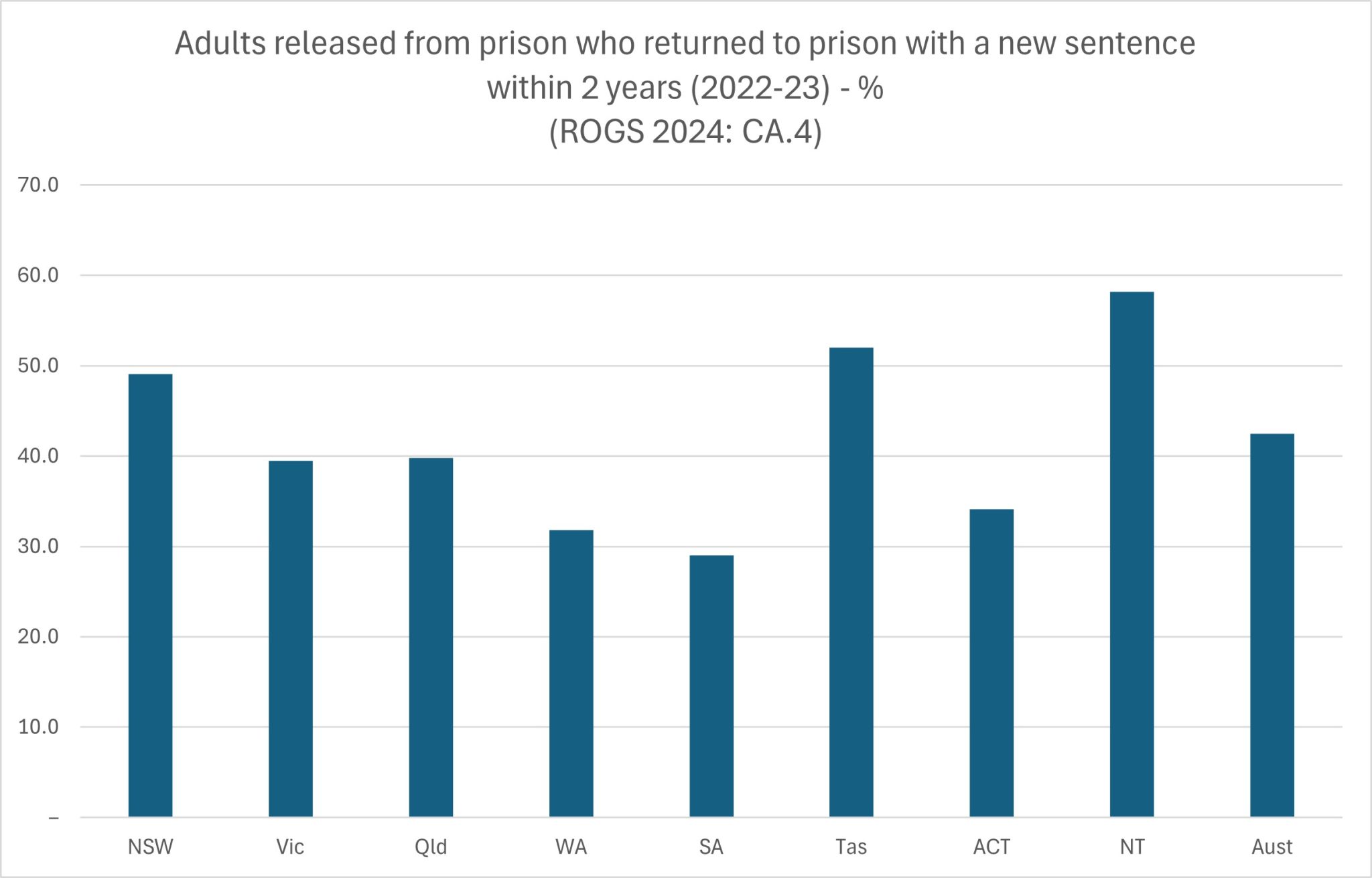
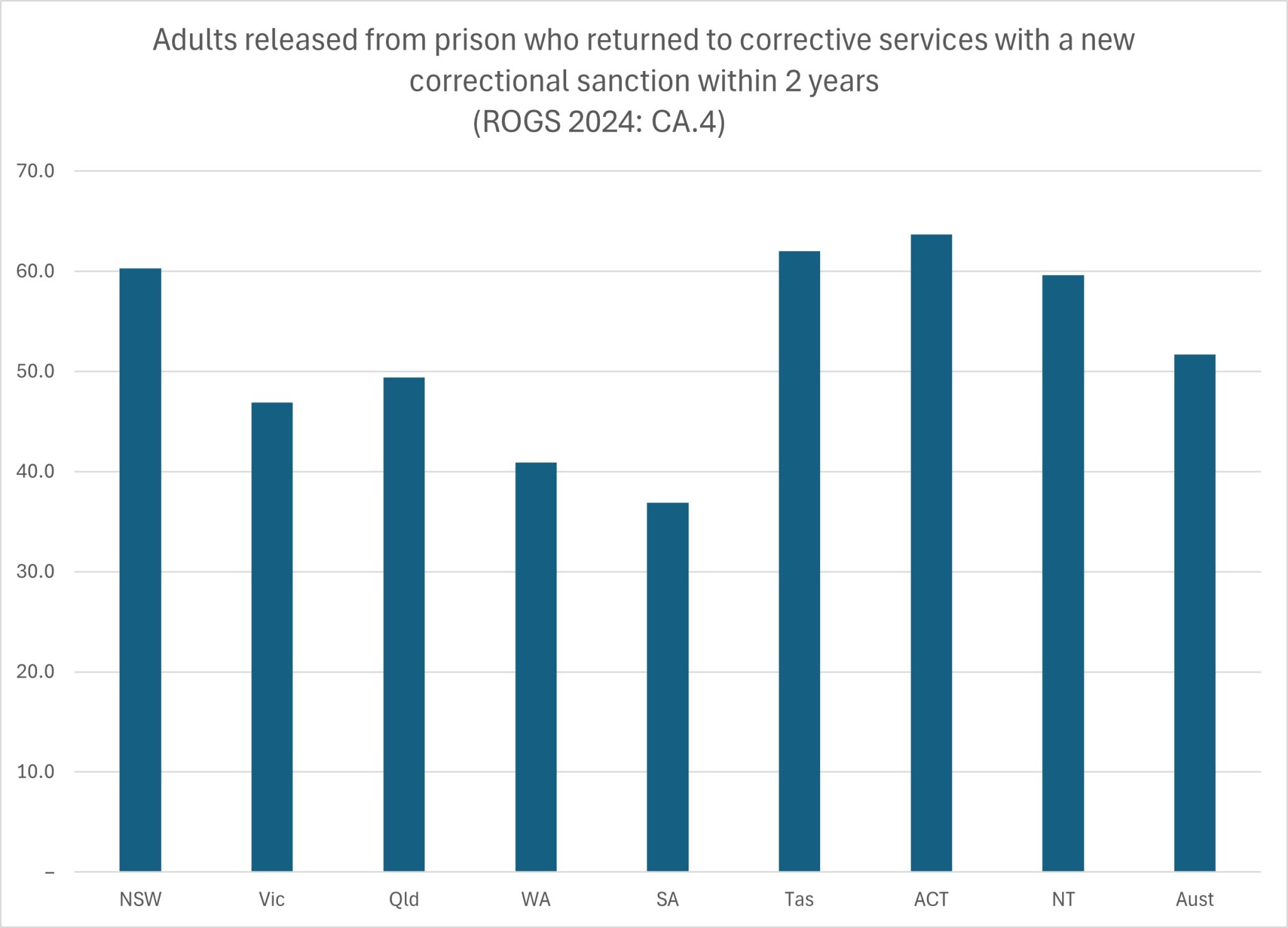
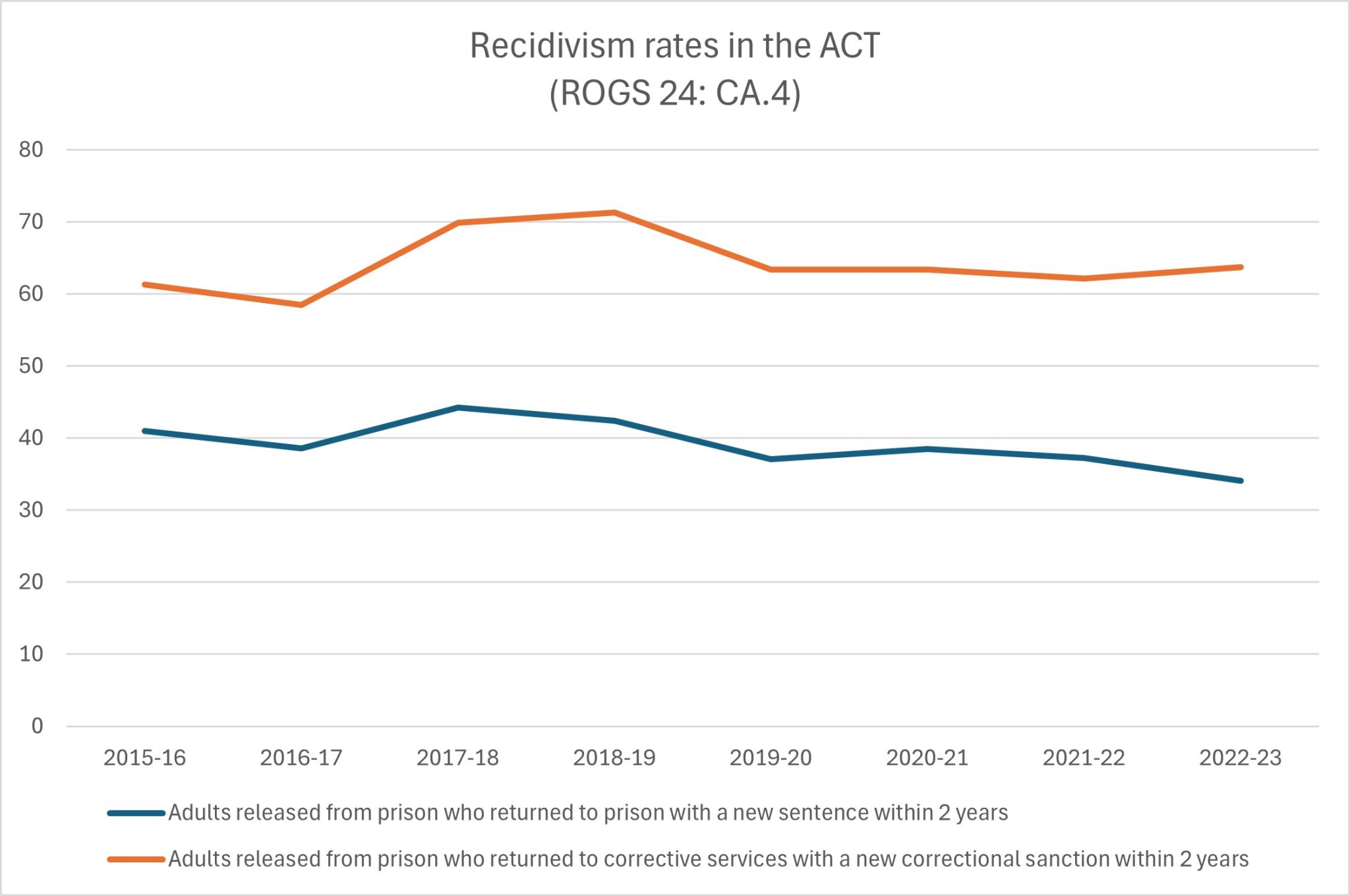
Tom McLuckie disagrees with “the sales pitch from ACT Government Ministers that we are a safe jurisdiction and crime rates are falling”.
In his opinion, under the current justice system, the “rose-tinted” ACT Labor / ACT Greens policies treat recidivist offenders like victims, reducing the number of cases brought to court.
“All crimes against the person (homicide, armed robbery, sexual assault and unarmed robbery) are trending up in number and in likelihood over the last 12 years,” Mr McLuckie said.
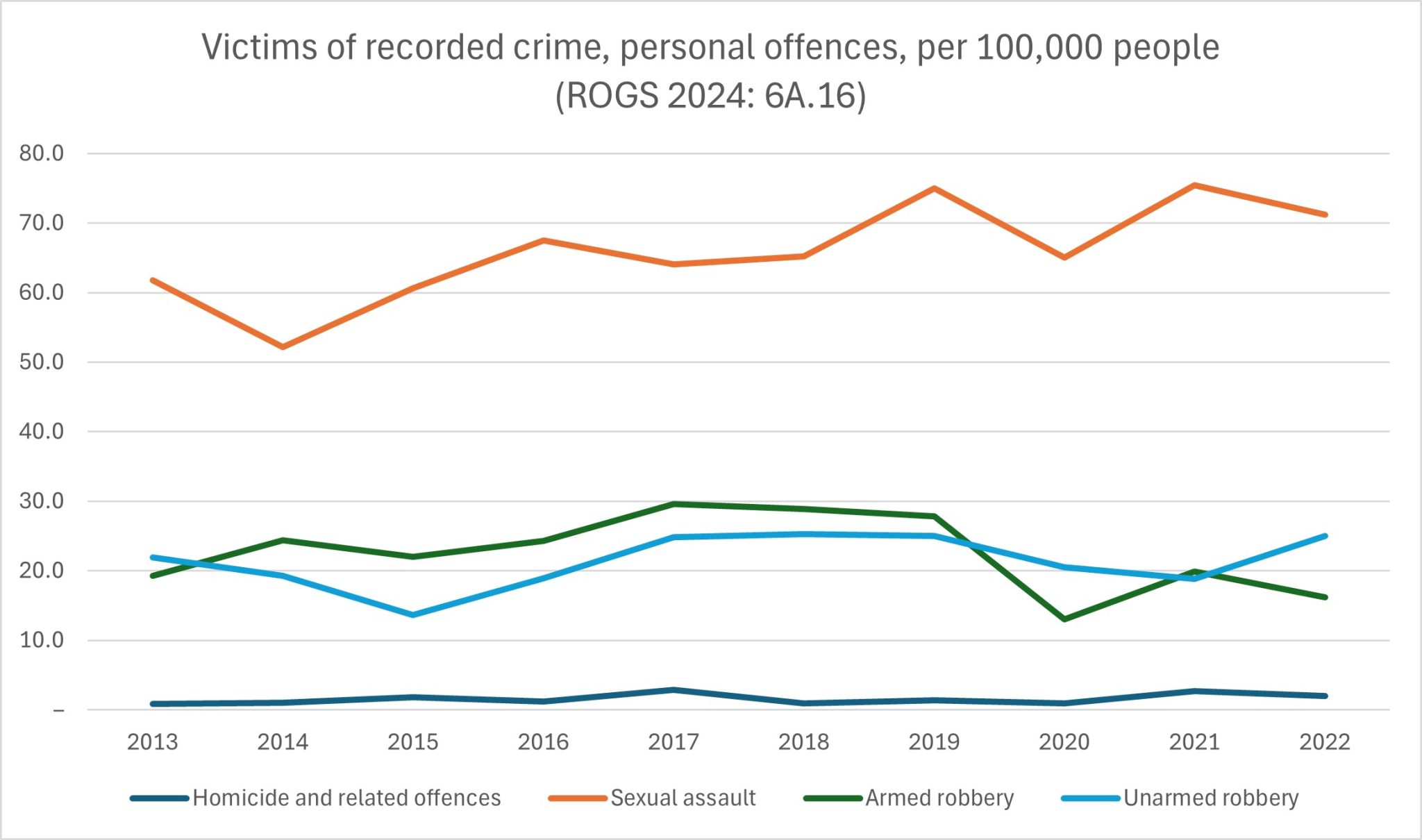
“Four of the eight property offence measures are also increasing in number and likelihood [over the last 12 years], in particular motor vehicle theft, directly attributing to many of the dangerous and aggravated driving offences we see in the territory.
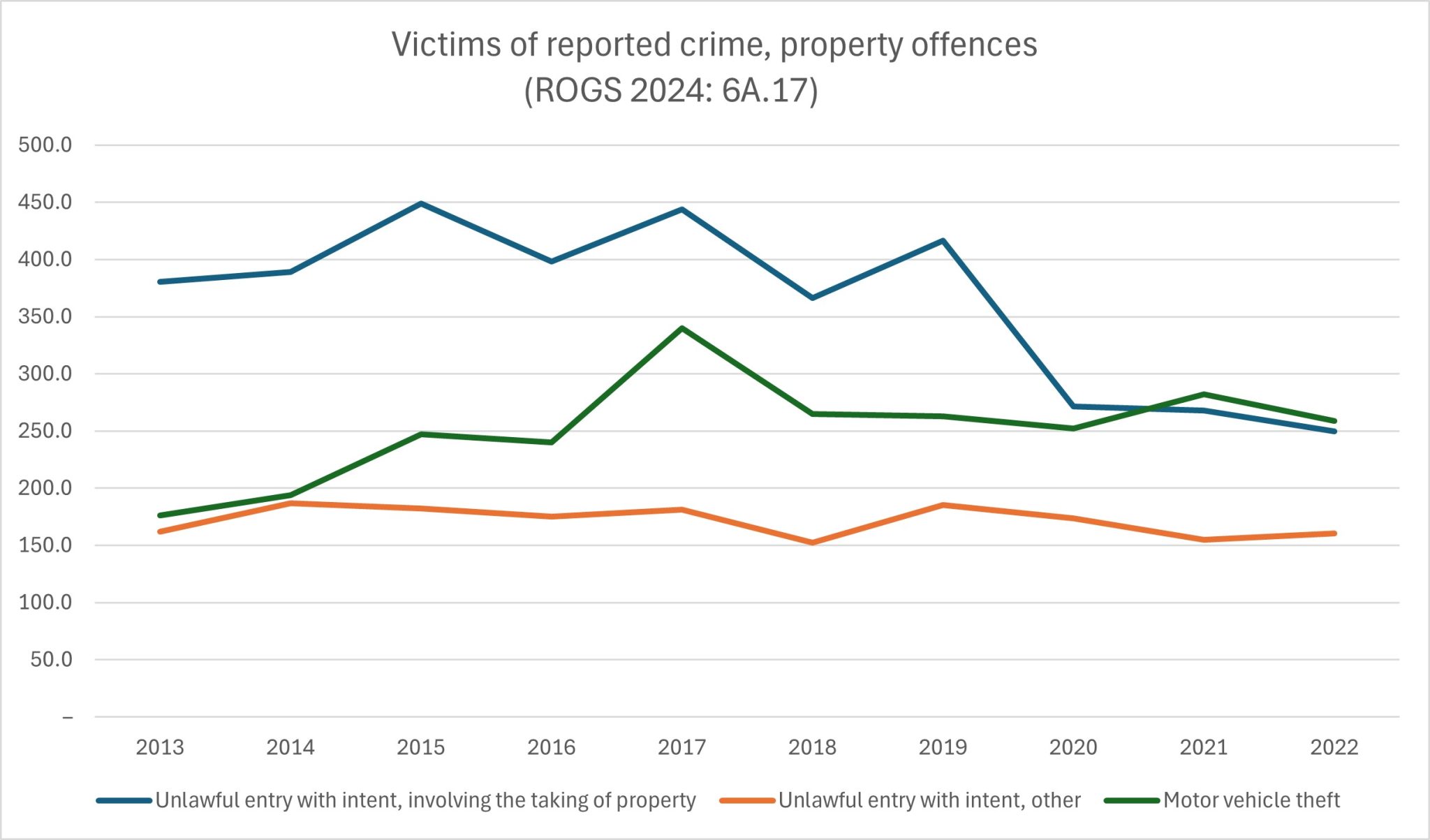
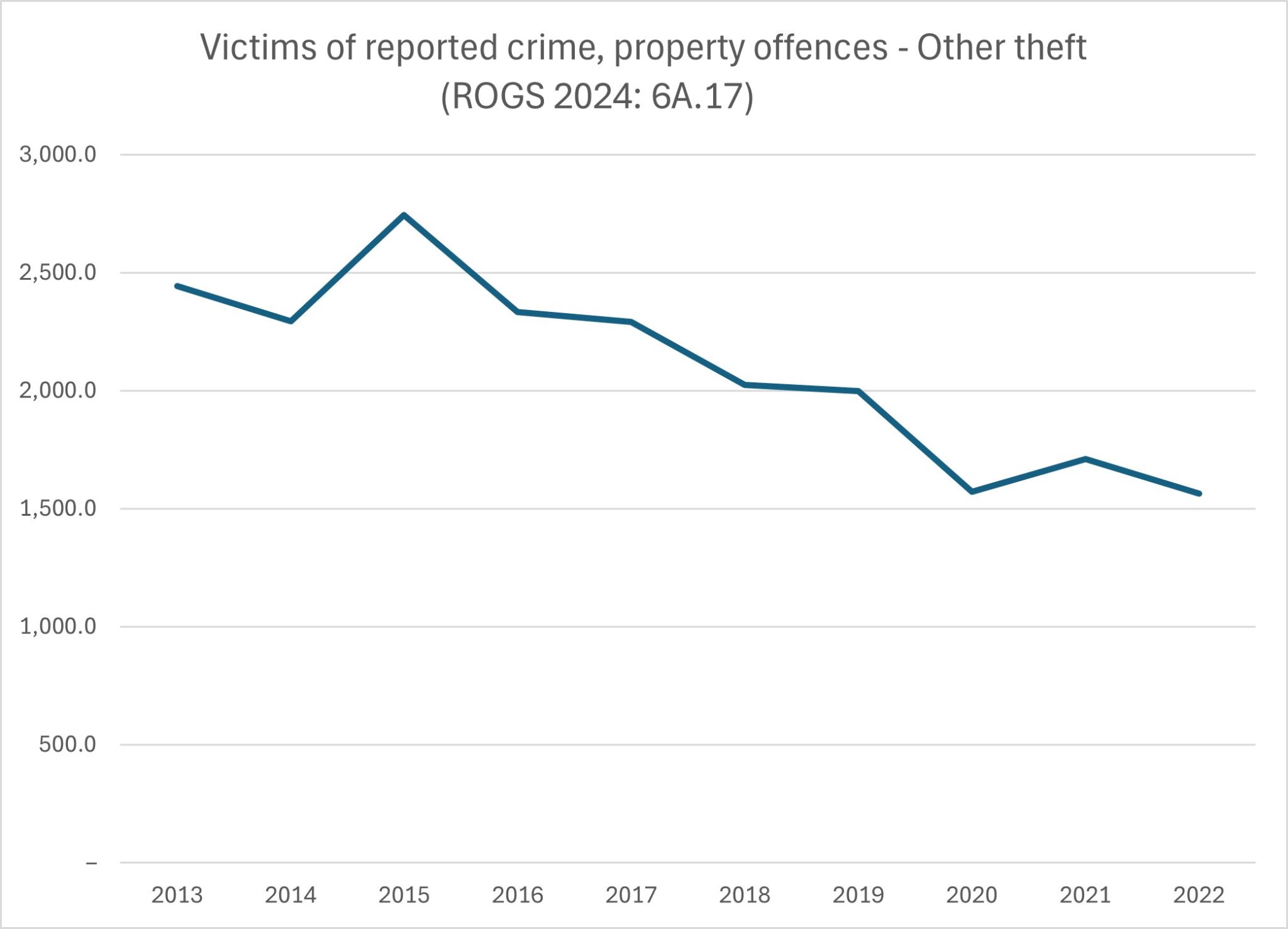
“The primary reason for crime rates falling is by moving a considerable number of matters that would have resulted in a criminal offence in our magistrates court no longer resulting in a criminal prosecution where a civilian fine is applied.
“However, serious crime is still increasing.
“We are the only state where our expenditure per person in policing has remained static in the last 12 years (a tiny increase of 0.13 per cent), compared with a national average in expenditure across other jurisdictions of 26.71 per cent.
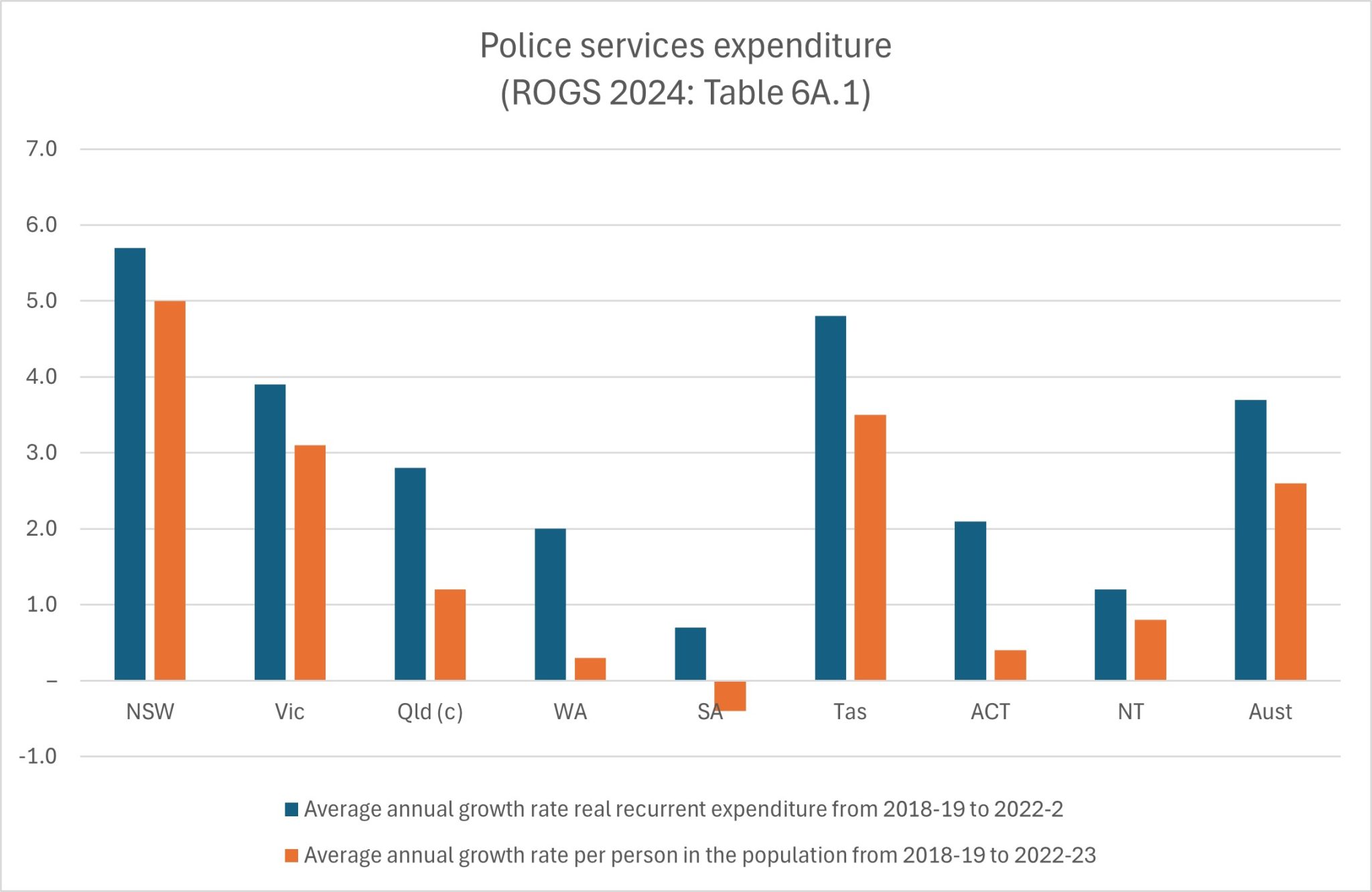
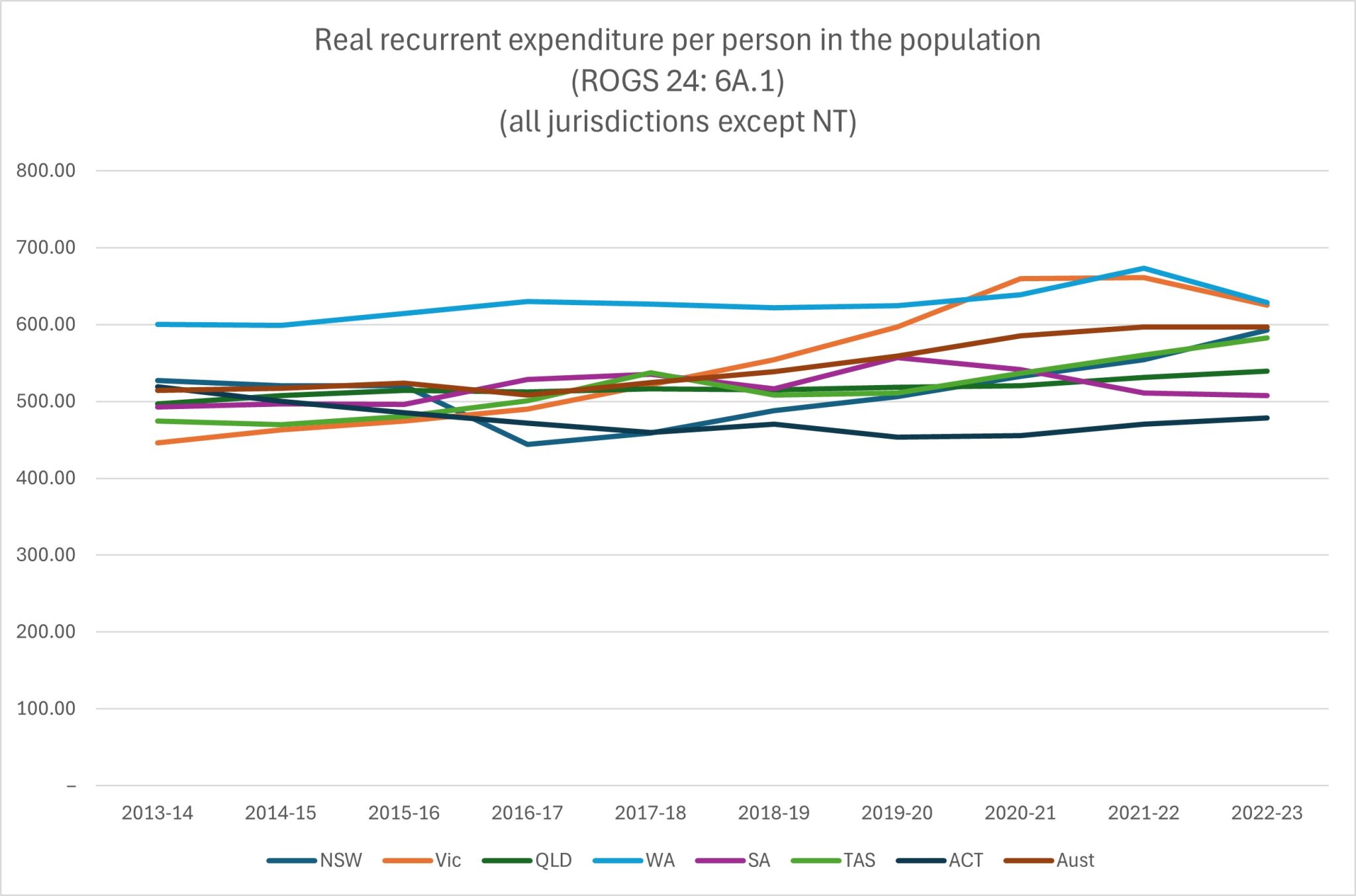
“Despite claims our lenient approach preferencing rehabilitation and restorative justice is working, we still have the highest reoffending rates in the country as reported by Reporting of Government Services through per cent of adults receiving a prison sentence or Community corrections order higher than it was 12 years ago at 63.7 per cent compared to a national average of 51.7 per cent.
“The rate of persons in our prisons who have been previously imprisoned is averaging in the mid 70 per cent, and for aboriginal and Torres Strait islanders now over 90 per cent. Indigenous incarceration has increased by over 250 per cent in the last 12 years from 47 persons per 100,000 adults to 112 persons per 100,000 adults. (See here.)



“Factor in that our criminal courts have overall the worst finalisation / conviction rates for many of the measured offences, are the most expensive in the country per finalisation, and our prison is the most expensive per prisoner, it is hard to see how the last 12 years can be sold as a success by the ACT Government. It is an unmitigated disaster.”
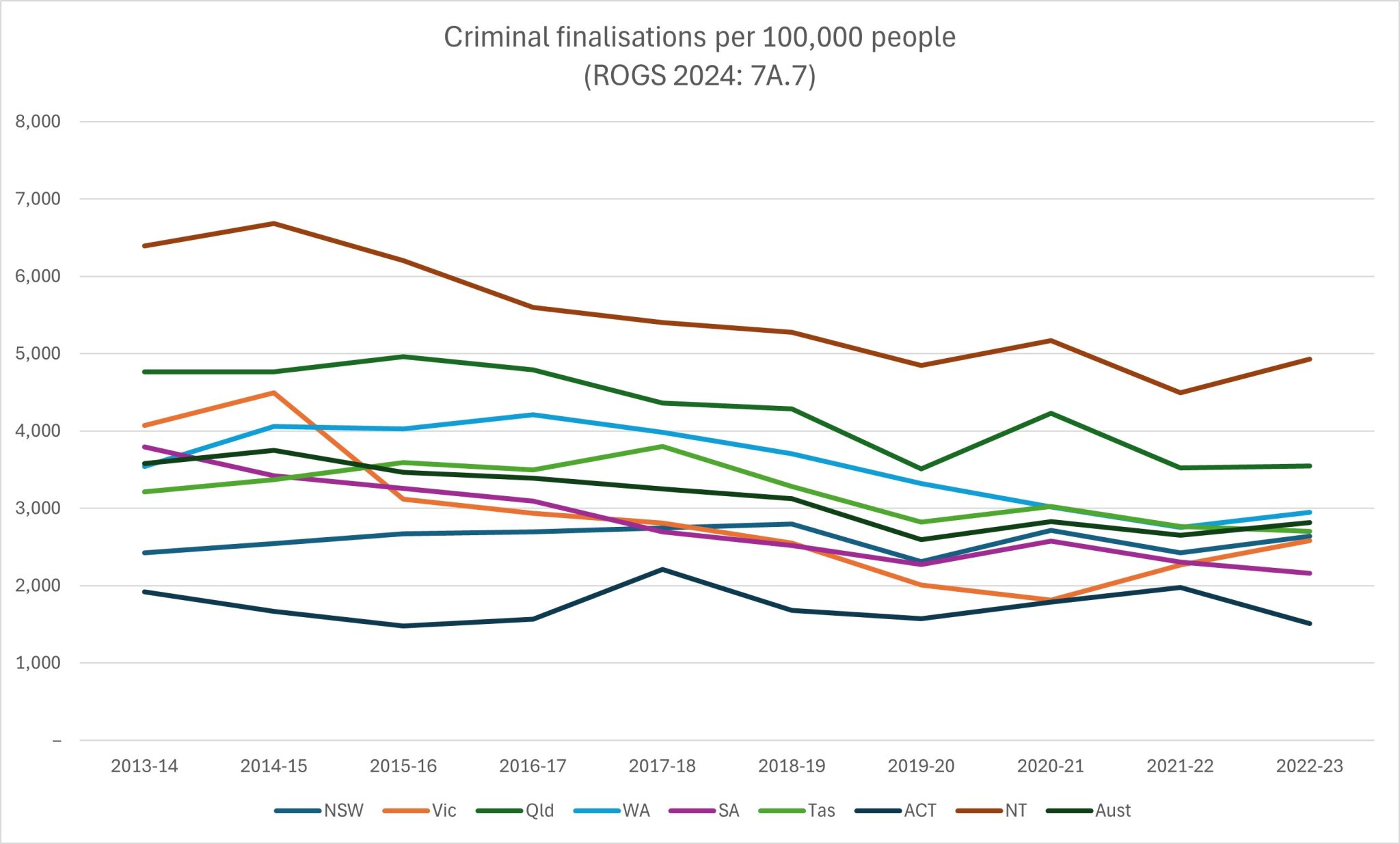
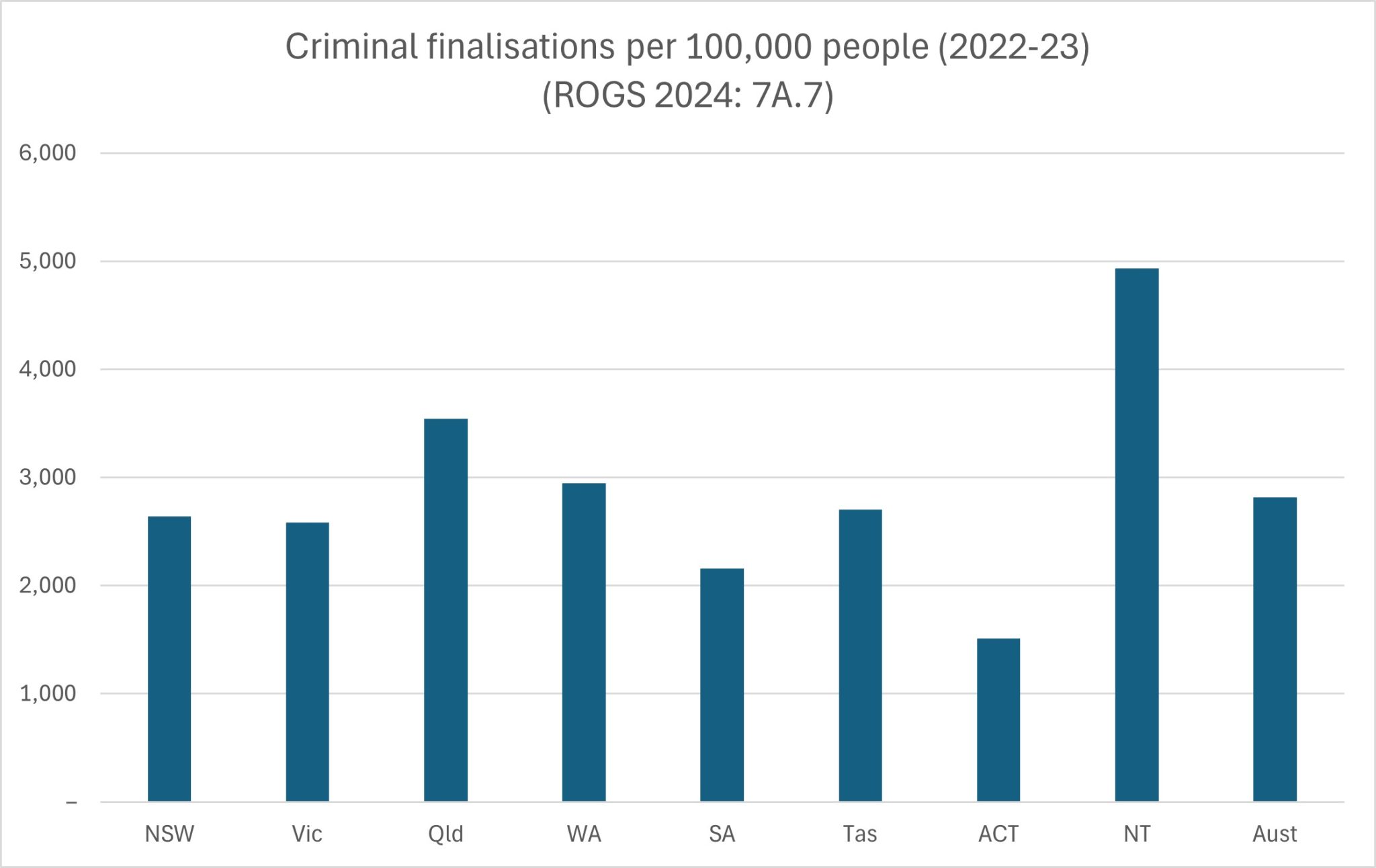
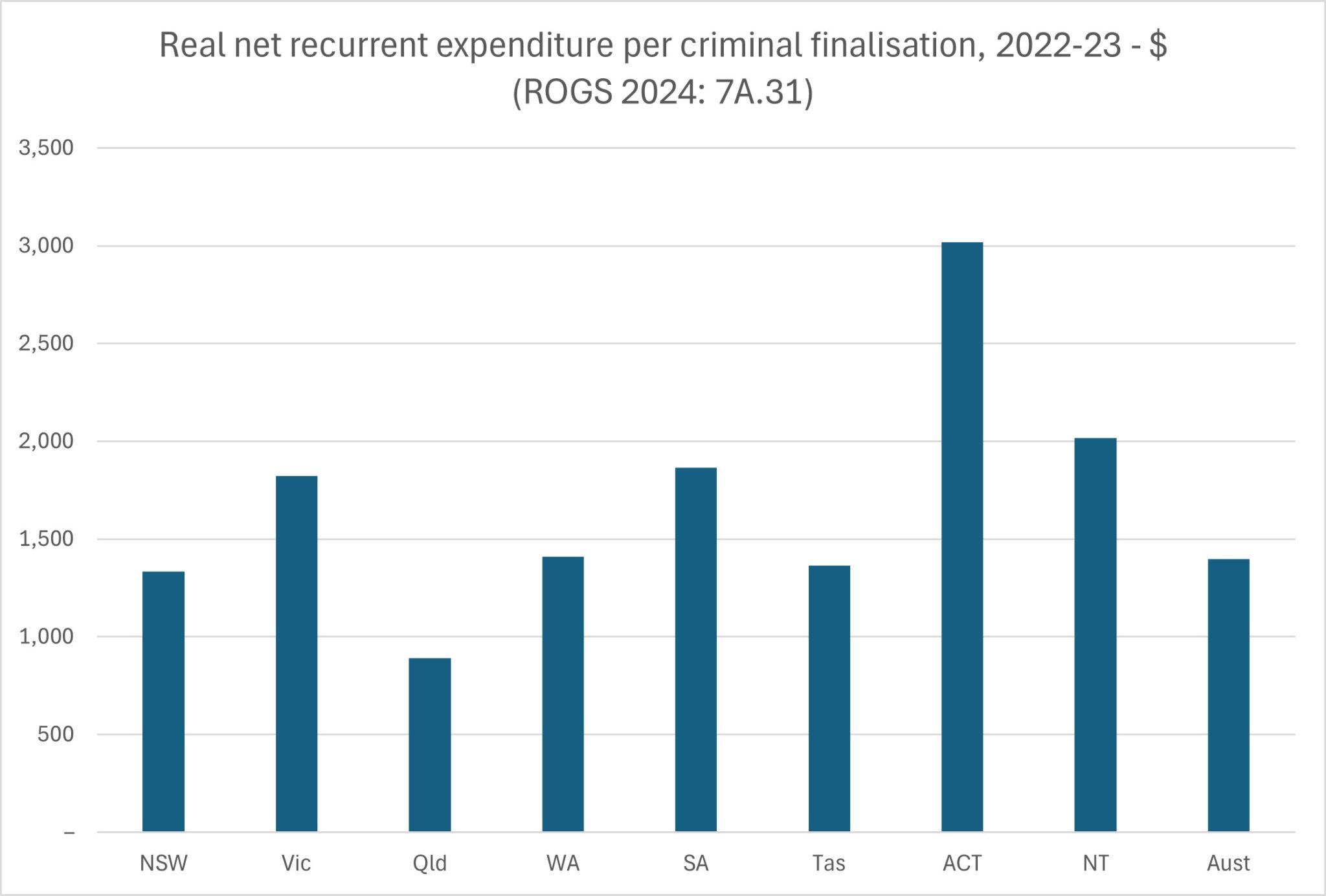
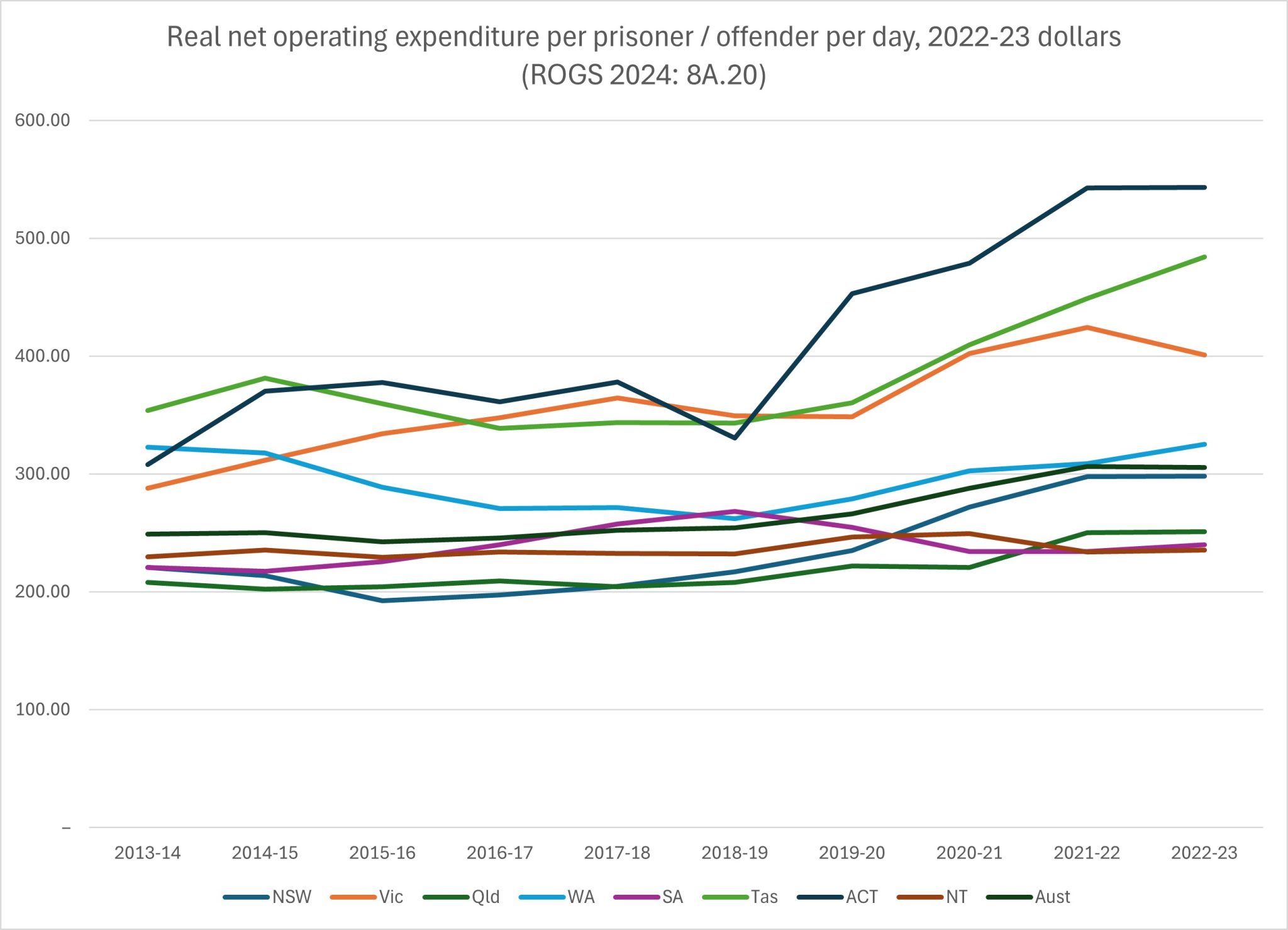
Belco Party calls for review of justice system
The Belco Party welcomed the commitment to invest in ACT policing, but called for an independent review of the justice system, candidate Jason Taylor, an ex-policeman, said.
“We welcome [the Canberra Liberals] as a late arrival to the party, noting that the Belco Party has been saying for months that we want to see all of the recommendations of the ‘Fuller Review’ implemented. We look forward to seeing what ACT Labor will commit to, noting that their government partners the Greens seem to have a peculiar dislike of the Police.
“Whilst the Belco Party are supportive of moves to address bail, dangerous driving and offending in general, the proposals of the Canberra Liberals appear to be merely a band-aid solution to what is a much wider issue with the ACT Justice System. This is why we want an independent review into the whole of the ACT justice system, then we will have a blueprint for the way forward. Then whoever is in Government can create a justice system that will really keep Canberrans safe.”
Address social disadvantage?
“The Liberals have the wrong approach on how to improve the justice system,” Andrew Braddock, Greens spokesman on policing, said. “All the evidence shows that we get better justice outcomes when we address the social determinants of crime.”
Mr Rattenbury cited programs like the Drug and Alcohol Court as an investment “that cut crime and makes our community safer”. Likewise, Mr Braddock said the PACER program, even in its early stages, showed centring mental health in incident response was successful. The Greens will provide additional mental health services, including mental health drop-in centres across the city, if returned to government.
“Former ACT Chief Police Officer Neil Gaughan said around 40 per cent of police call-outs relate to mental health, and police showing up can escalate some situations,” Mr Braddock said. “So our priority should be more mental health services, which will deliver better outcomes for people in a crisis, and free up police resources for other matters.”
“We know that time in prison often has a criminalising effect and disproportionately affects people who are already enduring disadvantage,” Mr Rattenbury said. “We achieve the best results when be put investment in things that actually work like restorative justice, housing, health, mental health and improving people’s quality of life. The Greens’ election commitments to build thousands more public homes, cut the cost of living, deliver more free health and mental health services will go a long way to improving people’s lives.”
Mr Braddock said: “In fact, over-policing can lead to worse community outcomes. We just saw an incident where five officers in three police cars came and arrested a Zimbabwean-born Canberra man for ‘trespassing’ in his own home. I understand ACT police have met with members of the African-Australian community since then, and I hope they continue to work on healing community relations.”
Mr McLuckie said the Greens’ claim that more policing (“or, as they call it, ‘over policing’,) would lead to more crime was “total bollocks”.
“The ACT Government continues to invest in preventative problems including mental health, education, drug and alcohol addiction, housing and youth programs,” a Labor spokesperson said. “Unlike the Canberra Liberals, we believe in creating opportunities rather than jail cells.”
Ms Lee noted, however, that the ACT had the highest rates of incarceration for Aboriginal and Torres Strait Islanders in the country – “a woeful record”. The rate is rising yearly. According to ROGS, Aboriginal people are 24.6 times more likely to be sent to prison in Canberra than non-Aboriginal people, seven points above the national rate (17.4). Last year, the ACT rate was 20.5. The ACT’s Indigenous incarceration rate has increased from 26.1 per cent in 2021–22 to 28.9 per cent in 2022–23. The ACT has the nation’s highest age-standardised ratio of imprisonment of Aboriginal and Torres Strait Islander people (1,452.4 Indigenous people to 73.9 non-Indigenous).
Inspector Richardson (Independents for Canberra) said: “Investing in justice reform is a vital part of the solution. We need effective rehabilitation programs that reduce repeat offending and better support for those who are reintegrating into the community post incarceration. Until we invest in rehabilitation, police officers will continue coming into contact with the same people, which is bad for the offenders, bad for the police and bad for our community. We have nowhere near enough programs aimed at youth diversion and reducing juvenile offending.”
“Now, no-one is going to say that any one of these measures is going to be the be-all and end-all,” Ms Lee said. “There are broader societal factors that must be taken into account: community and social support, health, education. They’re all part of a big melting pot of making sure that we create a more harmonious society.”

